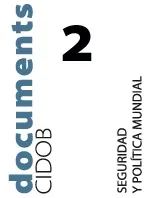Thinking to Practice: Applying complexity The Water-Food-Energy Nexus in Global Drylands

Documents CIDOB (new era): 2
E-ISSN: 2339-9570 / D.L.: B 11.000-2014
Since the German Government’s Nexus conference in Bonn in 2012, interest in holistic approaches to water, food and energy has exploded under the catchy label of “The Nexus”. The core tenet of the “Nexus” approach is that water, energy and food are intrinsically linked at both the bio-physical level and the policy-making level – that decisions and actions on water, food and energy are linked and affect each other. However, to become more relevant, the “water-food-energy nexus” needs to get beyond this superficial level and articulate what these links mean in practice. This paper offers three ways of framing the issues that currently have significant appeal with political elites: nexus issues as a) enablers of economic growth and development, b) amplifiers of strategic resource stress and c) an international relations challenge. To illustrate the degree of complexity involved in “Nexus” decision-making, it looks into the case of Ethiopia.
Key words: nexus, energy, water, food, environment, policy, climatechange, Ethiopia.